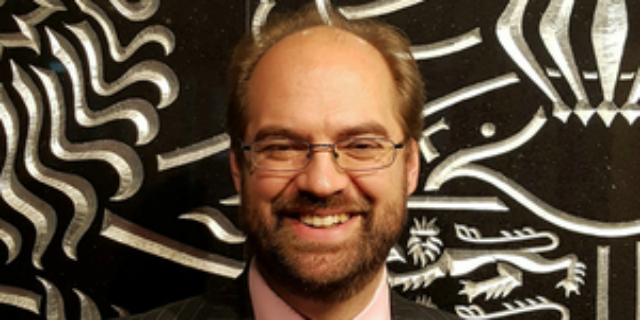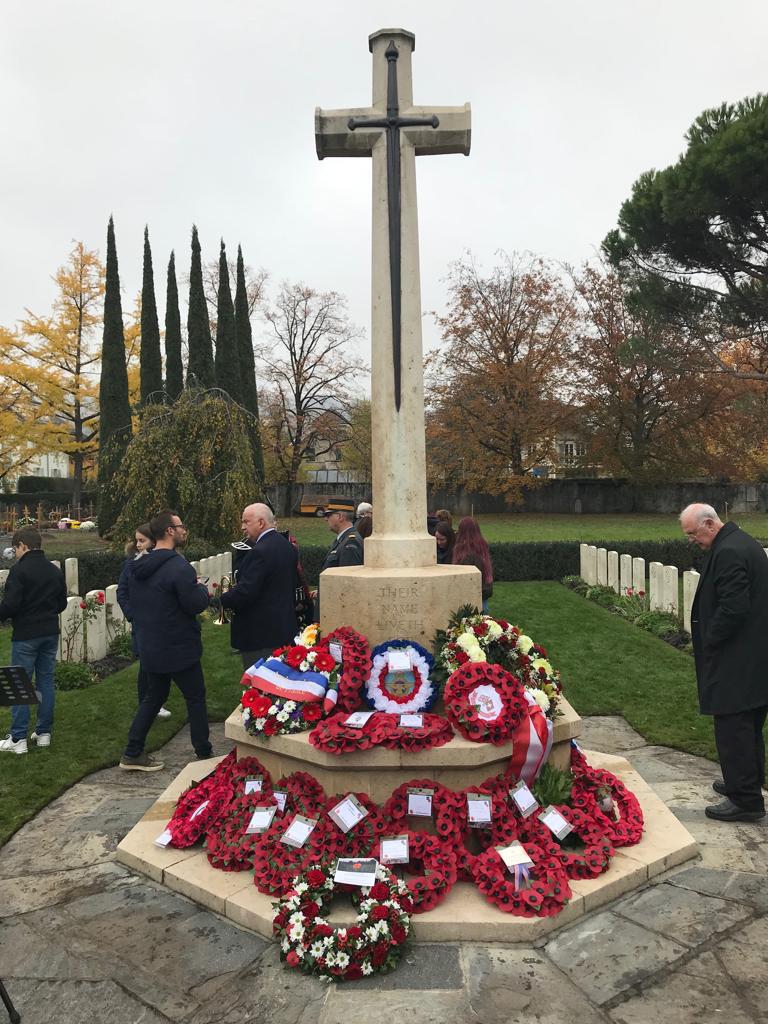16th November 2018 Geneva, Switzerland
Disarmament blog: World War I – one hundred years on

Last weekend we commemorated the 100th anniversary of the armistice that ended the fighting on the Western Front in the First World War. In the UK and Commonwealth, the eleventh hour of the eleventh day of the eleventh month has become a time to stop, fall silent, and remember the sacrifice of those killed in war.
One of them in particular has been in my thoughts. My great-uncle Joseph Liddle, a private in the Northumberland Fusiliers, lost his life in the Battle of Vittorio Veneto, the last major action on the Italian Front, on 27 October 1918, aged 23.
On Saturday I laid a wreath on behalf of the UK Mission in Geneva at the Commonwealth War Graves at Vevey, near Geneva. 136 British and Commonwealth servicemen are buried there; mainly wounded prisoners of war from the First World War sent to Switzerland for medical care.

These commemorations have also given me cause to reflect on what disarmament means, and why it’s important.
In the years after the Armistice, many came to believe that the arms race between the great powers had been one of the causes of the war. The League of Nations therefore put disarmament – limitations on the numbers of conventional armaments such as tanks and warships – at the heart of its mission. It was also a key part of the Treaty of Versailles.
The widespread revulsion at the use of poison gas on the battlefield also led to movements to ban weapons deemed inhumane. The 1925 Geneva Protocol, for example, banned “the use in war of asphyxiating, poisonous or other gases, and of bacteriological methods of warfare”.
In this way, disarmament and arms control is part of making “never again” a reality.
My first conclusion is that upholding the ban on chemical and biological weapons is a crucial part of honouring the memory of the First World War. Those who are flouting that ban need to remember the past, lest they condemn us all to repeat it.
My second is that, despite the focus on arms control, the peace of 1919 sowed the seeds for another, even more devastating war.
A key reason for why that pattern did not repeat in 1945 was nuclear weapons. A nuclear war would have unimaginable humanitarian costs. But two world wars almost exclusively fought with conventional weapons cost the lives of 80 million people between 1914 and 1945; a Third World War, in the 1950s or today, would be no different. The possession of nuclear weapons by the major powers has made that much less likely.
We are absolutely committed to a world without nuclear weapons. But it needs to be one in which an assassin’s bullet could not start a chain of events inexorably leading to a global conflagration between heavily armed states. The League of Nations failed to find a way of binding the major powers to limit their conventional arms. The idealistic Locarno Treaty simply to ban war failed. And the verification regime put in place by the Treaty of Versailles failed to contain German rearmament. So if we remove nuclear weapons from the equation, how can we be sure we will succeed in making war between the major powers unthinkable? And how do we ensure no-one is cheating when the stakes are so much higher with nuclear weapons technology than they were even with tanks and bombers in the 1930s?
It isn’t enough just to say, “never again”. To make that a reality in the nuclear age, a world without nuclear weapons has to be safer, and more stable, than the one we have now.